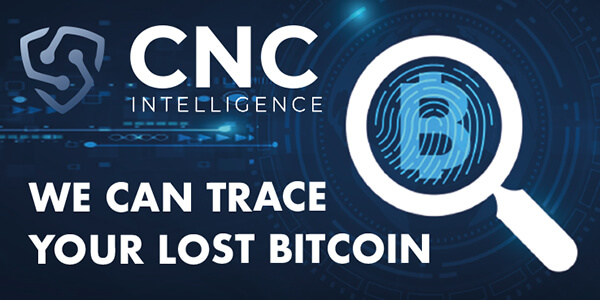Welcome to our AlphaGPT Review, where we investigate a complaint regarding the website alphagpt.io.
Did they scam you? Let us know by commenting below.

On August 21, 2023, we received the following complaint from a person who reported being scammed for $220:
The company’s name is AlphaGPT, and its website, Alphagpt.io, is a DApp based on the Binance Smart Chain. The company is in full partnership with BINANCE and Techright Audit, both of which have publicly announced their partnership with AlphaGPT. AlphaGPT offers AI trading services, also known as arbitrage trading. They sell trading robots to clients, who then instruct these robots to execute and complete trades within seconds to generate fixed profits. Registration is done through DeFi browsers, and since no personal information is collected, the only form of identification is the wallet address used during the initial connection.
Recently, the company introduced a KYC requirement, mandating that all clients pay a $99 USDT audit fee to pass the KYC process. Additionally, they have halted the withdrawal of client profits, many of whom have not yet recovered even 50% of their initial investment. Given these developments, the company now appears to be fraudulent. This fraud involves billions of dollars and has affected numerous people, so I urge you to take this matter seriously.
Based on the complaint, AlphaGPT appears to be involved in fraudulent activities. Here are some of the red flags indicated in the text:
- Sudden Change in Terms: The company introduced a new Know Your Customer (KYC) requirement that mandates all clients to pay a $99 USDT audit fee to continue using the platform. This change was sudden and may not have been communicated in advance.
- Halting Withdrawals: AlphaGPT stopped clients from withdrawing their profits, a major sign of fraudulent activity. This action has particularly affected those who have not recovered 50% of their initial capital.
- Lack of Transparency: The registration process through DeFi browsers did not collect any personal information from clients, making it hard to hold anyone accountable. The only form of ID is a wallet address, which can be problematic for ensuring accountability.
- Promised Fixed Profits: The company claims to provide trading robots that generate fixed profits, which could be seen as an unrealistic promise in the context of trading.
- Partnerships: While AlphaGPT claims to be in partnership with BINANCE and Techright Audit, verifying these partnerships independently is important, as false claims could be a tactic to gain credibility.
So, based on this complaint, AlphaGPT is the party accused of scamming clients out of potentially billions of dollars. Given the severity of the allegations and the large amount of money involved, this matter would warrant further investigation.
So, is AlphaGPT a SCAM?
AlphaGPT.io Review
Alphagpt.io was registered on March 3, 2023, for 6 years through Dynadot, LLC. They registered their domain for 6 years, which is unusual and would be a positive sign if only the domain were still online. It seems not to possess a hosting, and a mere 6 months after its inception.
Its SimilarWeb Global Rank is 144,381. Its strongest country is Russia, ranked 142,620 and 881 in the Finance > Investing category. In July 2023, they received 413.8K visits from Russia, Ukraine, Turkey, Vietnam, Bangladesh, the United States, Australia, Turkey, and other countries.
Its SEMrush Authority Score is 7, with 415 backlinks from 43 referring domains.
Only the homepage, AlphaGPT, is indexed on Google, but there’s no content on the cached site.
The only helpful piece of information on Google’s cached version of the AlphaGPT website as it appeared on June 18, 2023 is:
<html lang=zh-CN>
This specifies that the document is an HTML5 document and is in Simplified Chinese (`zh-CN`).
According to trustprofile.com, their email address was info@alphagpt.io.
AlphaGPT Airdrop
Regarding the Airdrop described on coinist.com.ng and elsewhere, which promises a daily claim of $0.40, there are several points to approach skeptically. First, while the airdrop appears to offer free money, the process to claim it requires navigating through a link, pasting it into a Trust Wallet browser, and choosing a network. Although these steps might seem straightforward to a seasoned crypto user, they could be potential pitfalls for novices, exposing them to risks that aren’t immediately clear.
Secondly, the article does not examine AlphaGPT’s legitimacy in-depth, only touching upon the inherent risks associated with cryptocurrency investments. In an area rife with scams and speculative ventures, the lack of an exhaustive background check or due diligence makes one question the credibility of AlphaGPT and the reviewing site.
Vloghealth.inf
Another website, vloghealth.inf, advertises this Airdrop. However, while AlphaGPT positions itself as a disruptive innovation technology company focusing on crypto-promising quantitative arbitrage, several elements warrant skepticism. First, the complexity surrounding the airdrop and its myriad conditions — from requiring a Binance exchange account to minting Binance Account Bound Tokens (BABT) — make the entire process less straightforward than most airdrop initiatives in the crypto space.
Furthermore, the platform’s reliance on invitation links for entry feels limiting and somewhat exclusive, which may deter general user participation. This is compounded by the requirement to switch to the Binance Smart Chain upon entering their Decentralized App (DApp), an extra step that could alienate those less familiar with blockchain mechanics. The intricacy of the referral system and daily rewards, which involve a confusing mix of locked and unlocked AGPT tokens, flash exchanges, and staking, raises questions about the transparency and user-friendliness of the platform.
The company’s use of automated bots for arbitrage trading is another concern. While algorithmic trading isn’t new, the lack of transparent information on the bot’s performance and risk parameters could be a red flag for potential investors. The bot’s working principle suggests that it aims to benefit from price discrepancies across exchanges, a well-known strategy that is not without risks.
Lastly, the article concludes without providing substantial information on how AlphaGPT intends to sustain these daily payouts or any underlying economic model. This omission is concerning and should be a red flag for potential investors.
AlphaGPT Reviews
Based on the Google search results for “alphagpt.io”, the platform appears to be a controversial service related to cryptocurrency, particularly through Binance bots. It seems to be an online earning platform that promises to reward users who purchase an investment plan with daily commissions.
Trustpilot
The Trustpilot reviews for AlphaGPT are mixed and raise a few red flags. The platform has an overall TrustScore of 3 out of 5, with 46% of reviewers giving it a 5-star rating and 40% rating it 1 star. Positive reviews, mostly from users in Nigeria, praise AlphaGPT for providing them with a steady income stream, labeling it as a legitimate platform for cryptocurrency and contract programs. However, the enthusiasm in these reviews often seems promotional, with some reviewers even sharing registration links and instructions on how to join, which may indicate biased opinions.
On the flip side, the skeptical and negative reviews accuse the platform of implementing an unjustifiably high Know Your Customer (KYC) fee of $99. Customers complain that this fee isn’t taken from their AlphaGPT wallet but must be paid up-front, and they can’t withdraw their funds unless they complete this KYC process. This has led many to label the service as a scam, claiming that people have lost money due to these policies.
BrowsingTechZone
Mentions that the premium plan starts from a Binance bot and costs around $20.
AlphaGPT presents itself as a disruptive technology company specializing in cryptocurrency quantitative arbitrage. Based in Manchester, UK, the platform claims to provide a secure, regulated environment for both first-time crypto arbitrage buyers and professional traders. It offers features like high-frequency use, security measures, and low-threshold operation. Multiple investment plans are available, with earning potentials ranging from 30% to 90% monthly income. Registration requires using a decentralized app (DAPP) browser on a crypto wallet, like Trust Wallet, and the platform uses BNB Smart Chain for its transactions.
However, skepticism arises on several fronts. First, although the platform claims to have been founded in 2021, it was registered in 2023, creating an immediate discrepancy. Second, the withdrawal process suggests otherwise despite claiming that all funds are in users’ control through a DAPP account. Users can’t access their earnings directly and must initiate a withdrawal, contrasting the promise of direct control over funds. Finally, the business model and high promised returns bear the hallmarks of a potential Ponzi scheme, promising considerably high, stable profits with little clarity on how these profits are generated.
The review highlights the platform has innovative aspects, like its unique operational method and blockchain base. However, these features can’t entirely alleviate concerns over its legitimacy. At best, AlphaGPT comes across as a high-risk, speculative platform; at worst, it could be a Ponzi scheme in a tech-savvy disguise.
Nairaplan
Identifies it as an online earning platform and discusses investment plans and daily commissions.
The AlphaGPT.io platform presents itself as an investment opportunity, claiming to offer daily commissions to users who buy into its tiered investment plans. Despite this promise, several elements raise skepticism about its legitimacy. The site was only recently registered in March 2023 and is quite new to the market, often a red flag for online investment schemes. The investment plans range from 20 USDT to a staggering 50,000 USDT with a daily commission of 3% to 3.8%. While this might sound attractive, it’s worth noting that any platform promising fixed daily returns on investments should be cautiously approached, especially one as newly established as AlphaGPT.io. The minimum withdrawal limit is 3 USDT, but the site doesn’t provide transparent information about the number of users who have successfully withdrawn their earnings.
The review by Joe seems to pivot midway to discuss affiliate marketing and his personal success with it. This shift could be perceived as a distraction from the purported purpose of the article: to assess the legitimacy of AlphaGPT.io. Additionally, there’s an emphasis on “taking full action” and clicking through to other opportunities, which might suggest that the actual focus of the article is not necessarily to provide an impartial review of AlphaGPT.io, but perhaps to drive traffic or clicks elsewhere.
Tech Propagator
Claims that, based on their experience, Alphagpt.io is a legitimate and paying platform.
While the Tech Propagator review of AlphaGPT.io paints an overall positive picture of the platform, claiming it’s currently a legitimate and paying investment avenue, several elements warrant skepticism. For starters, AlphaGPT.io promises a 3% daily return on investment, which is unusually high and often associated with high-risk or fraudulent schemes. While the review assures that the platform is registered under ALPHA ASSETS LTD in the UK, the financial world is no stranger to registered companies still engaging in dubious practices.
Also concerning is the limited information about how the platform operates beyond buzzwords like “AI” and “crypto quantification.” AlphaGPT.io doesn’t seem to be listed on established cryptocurrency exchanges, requiring you to buy their tokens directly from their website. This centralization is a red flag in cryptocurrencies, limiting transparency and possibly inflating the token’s actual value. The review does provide a Trustpilot rating but fails to delve into the nuances that such ratings can sometimes be manipulated.
The review vaguely hints at a potential Ponzi-like nature of the operation but falls short of critically exploring this aspect. Furthermore, the fact that one can earn by referring others to the platform typically sets off alarms for pyramid-like structures.
Sparkymedias.com
In reviewing AlphaGPT, one cannot help but be skeptical about its operations and promises. To begin with, AlphaGPT is an investment-earning platform that claims to generate sustainable daily profits for its users through artificial intelligence quantitative trading solutions. The platform offers various investment packages with varying daily and annual returns, from as low as $20 for a 3% daily return to $1,000 for much higher yields.
Despite the attractive promises, there are a few points of concern. First, AlphaGPT gives new users a “FREE ROBOT” that allegedly trades for you for five days, which could easily lure people into thinking this is a risk-free venture. Second, it’s concerning that the minimum withdrawal threshold is set at $3 but comes with a withdrawal charge of $1.5, which is quite steep relative to the earnings.
Another red flag is the anonymity of the platform’s CEO or founder. Any investment platform that hesitates to reveal its leadership raises questions about its legitimacy and long-term stability. While the article states that no negative reports or scams related to AlphaGPT have surfaced, the lack of transparency could be a ticking time bomb for potential scams.
Moreover, the platform emphasizes a referral program, often serving as a pyramid scheme hallmark. AlphaGPT’s entire structure appears built on recruiting new members rather than truly generating revenue from intelligent trading, as it claims. And although they have a token that is apparently trading at $1.67, this doesn’t necessarily confer legitimacy on the platform.
Earnmorecashtoday.com
Alphagpt.io purports to be a lucrative platform for cryptocurrency trading and investments in the world of rising online financial opportunities. Offering a range of investment plans, it claims to return a percentage of your investment in a short span of time. While this sounds inviting, several aspects raise immediate red flags.
Firstly, the anonymity of the platform’s ownership is concerning. Legitimate platforms have no reason to hide ownership details, yet Alphagpt obscures this information. Secondly, the website’s content is not unique; it’s duplicated across different platforms, which could indicate a less-than-legitimate operation. Thirdly, its Trust Score is markedly low, which for any seasoned online investor should ring alarm bells. Add to this the absence of a dedicated application for easier user interface, and the platform looks less appealing.
The site does make an attempt to reel in users with an attractive referral program, promising to pay you for bringing in more users. While that could be a standard practice for many legitimate businesses to grow their user base, it comes off as a potential tactic to spread risk and dilute accountability in the context of other warning signs.
Even though Alphagpt.io is optimized for mobile usage, convenience should not be mistaken for credibility. The original review straightforwardly labels Alphagpt as a scam, warning potential investors to be cautious.
AlphaGPT Videos and Social Media
Multiple YouTube videos and TikTok entries discuss whether the platform is legit or a scam, providing tutorials on account creation and live deposits.
It has an official Telegram group where you can find more information as well as additional red flags:
- Use of Buzzwords: Phrases like “establish the world’s largest encrypted closed-loop ecosystem” and “$AGPT TO THE MOON🚀” are common buzzwords and phrases that may not have a clear meaning but are used to generate excitement.
- Financial Troubles: They mention that the company is facing financial risks, but assure that the ‘parent company’ is stepping in to manage the crisis. This could be a warning sign that the project may not be as stable as they present.
- Legal Issues: There is mention of an “anti-money laundering investigation” and being “reviewed by the local financial supervision department.” Legal issues should be a significant red flag.
- Promise of High Rewards: Claims of significant financial gains (“you will reap huge rewards”) are typical of schemes that may be more interested in attracting investment than in delivering on their promises.
- Manual Correction of Assets: They mention that if assets are out of sync, they will manually send them to your wallet. This implies that the system is either not automated enough or facing issues that might risk asset loss.
- No Direct Affiliations with Known Entities: They clarify that there’s “no relationship between AlphaGPT and Binance Exchange,” which might be a way to manage expectations but also suggests they don’t have partnerships with well-known or trusted entities in the crypto space.
AlphaGPT Review Conclusion
In summary, AlphaGPT.io presented itself as a highly attractive investment platform in cryptocurrency trading, promising high returns and leveraging cutting-edge technology such as AI and blockchain. While the platform’s buzzword-heavy marketing material and innovative features might entice the uninformed investor, a deeper dive into its operations and structure raises a litany of red flags that can’t be ignored.
Discrepancies in the platform’s registration timeline, lack of transparency regarding fund withdrawal, and high promised returns paint a picture of a high-risk, potentially fraudulent operation. The lack of clear ownership, questionable Trust Scores, and vague operational methodologies further exacerbate concerns. Reviews across various platforms—glowing or cautious—lack the critical nuance to assuage these risks. The platform’s Telegram group ironically serves as a breeding ground for additional red flags, from scarcity tactics to legal troubles.
Perhaps most concerning are the hallmarks of Ponzi and pyramid-like structures: an emphasis on recruitment over genuine revenue-generating activities and promises of high rewards that seem unsustainable in the long run. Coupled with its high-risk categorization on various risk-assessment websites and its shared server space with other suspicious sites, AlphaGPT.io’s credibility is in serious doubt.
Given the plethora of cautionary signals and the absence of robust evidence to suggest its legitimacy, potential investors would do well to exercise extreme caution.
If you are a victim of online scams, please let us know by commenting below, and if you have lost a significant amount of money, do not lose hope. We can help you recover your funds!



